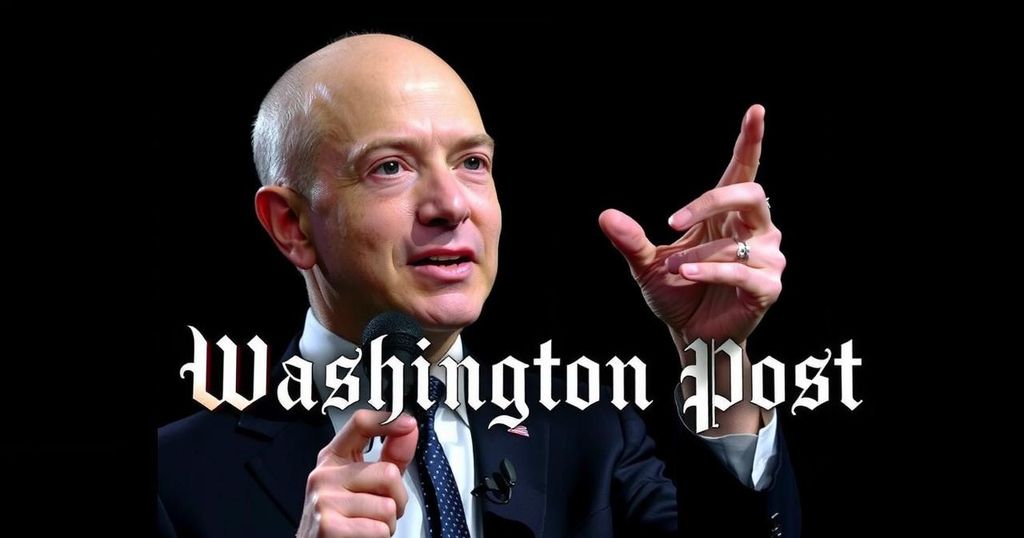Jeff Bezos Advocates for Non-Endorsement Policy at The Washington Post

Jeff Bezos has defended The Washington Post’s decision not to endorse any presidential candidate, citing a desire to eliminate perceptions of bias. This move follows a notable loss of digital subscriptions, with internal dissent among columnists regarding the policy. The Post aims to return to its roots of non-endorsement, emphasizing the need for journalistic credibility in an era of heightened scrutiny.
Jeff Bezos has publicly defended The Washington Post’s controversial decision to refrain from endorsing any candidate in the upcoming presidential election, arguing that such endorsements could contribute to a perceived bias in the media. Following reports that approximately 200,000 individuals have canceled their digital subscriptions in response to this decision, Bezos further elaborated on the rationale behind it in an opinion piece published in the very newspaper he owns. Bezos stated that “most people believe the media is biased” and asserted that the newspaper needs to enhance its credibility, which he believes is undermined by making endorsements. He explained, “Presidential endorsements do nothing to tip the scales of an election. What presidential endorsements actually do is create a perception of bias. A perception of non-independence. Ending them is a principled decision, and it is the right one.” This decision occurred only two weeks before Election Day and has sparked criticism, with detractors suggesting that Bezos may have been motivated by concerns over potential reprisals from Republican candidate Donald Trump, should he succeed in the election. In response to such allegations, Bezos clarified that no candidates were consulted prior to the decision and that there were “no quid pro quo” arrangements involved. The newspaper’s publisher and CEO, William Lewis, confirmed that The Washington Post would not endorse any presidential candidates, stating, “We are returning to our roots of not endorsing presidential candidates.” The Washington Post has established itself as a significant journalistic institution, known for its investigative reporting and esteemed 76 Pulitzer Prizes. Yet, the recent decision has elicited strong reactions from within its own ranks. A number of columnists have expressed their dissatisfaction on the newspaper’s website, while a few have chosen to resign in protest, claiming that the decision is a “terrible mistake” that represents a departure from the newspaper’s core editorial principles.
In recent years, media organizations have come under scrutiny for perceived biases, particularly during election seasons. The notion of endorsing political candidates has become increasingly contentious as many outlets strive to uphold neutrality in their reporting. The Washington Post, a newspaper with a storied history of investigative journalism, has chosen to revert to its non-endorsement policy in a bid to preserve its integrity and credibility amidst growing consumer skepticism. This decision is also amidst a backdrop of subscription cancellations, highlighting the recent challenges facing the media industry related to political reporting and the trustworthiness of their coverage.
In summary, Jeff Bezos’s defense of The Washington Post’s decision to not endorse a presidential candidate is rooted in a desire to eliminate perceived bias and enhance the paper’s credibility. Despite the backlash and significant subscription losses, this decision reflects an effort to adhere to the journalistic standards that The Washington Post is reputed for. With ongoing debates about the role of media in elections, The Washington Post’s choice to prioritize impartiality may set a precedent for other news organizations moving forward.
Original Source: www.aljazeera.com






